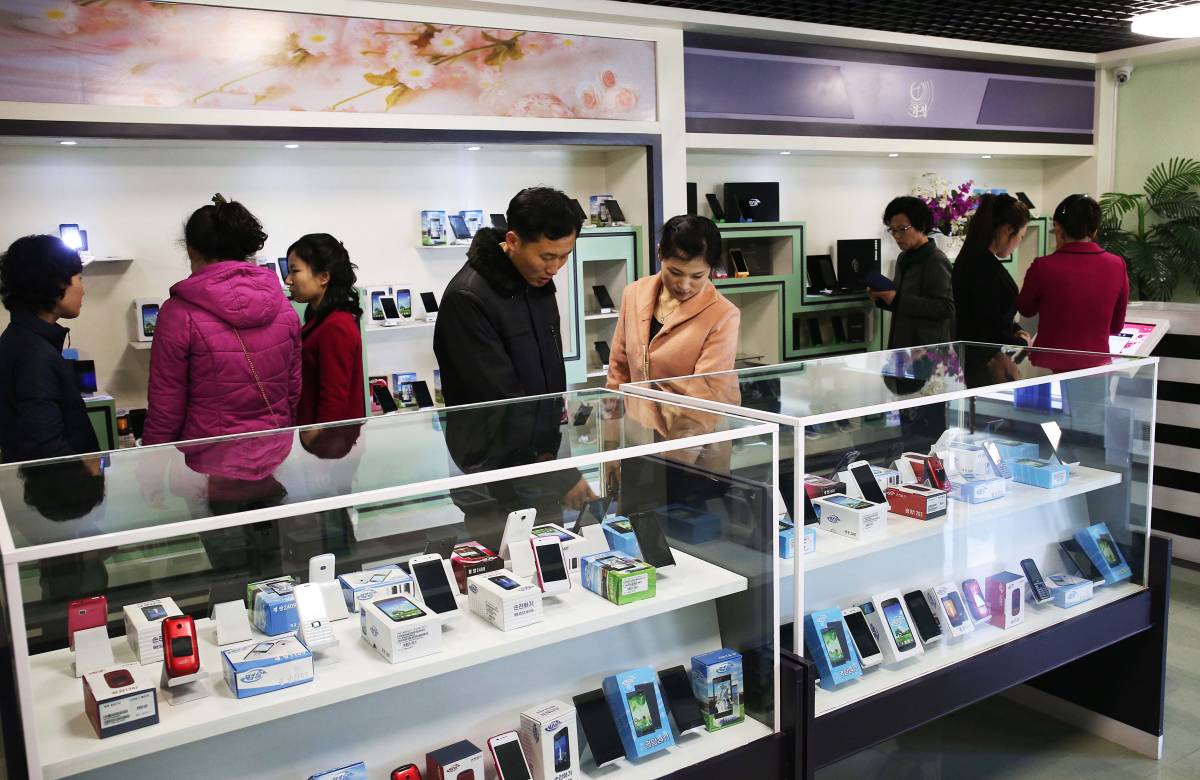With the North Korean authorities suddenly banning the sale of mobile phone minutes (mobile money), Daily NK has learned that not only donjuLiterally "masters of money," donju refers to people who hav... More (North Korea’s wealthy entrepreneurial class) but even ordinary people have suffered serious financial losses.
“You couldn’t top off your mobile phone minutes from the afternoon of the day they handed down the order banning the sale of mobile money,” a source in North Korea told the Daily NK on Oct. 21. “People who bought mobile phone cards and were unaware of the news suffered losses.”
People who converted their mobile money into minutes by the morning of the day of the order suffered no serious losses, but it was a different story from the afternoon as one could no longer top up his or her phone.
Previously, Daily NK reported that donjuLiterally "masters of money," donju refers to people who hav... More had suffered major losses after the North Korean authorities banned the sale of mobile money, ostensibly to eradicate “private commerce.”
“People who were unaware of the order tried to top up their minutes the usual way, but they received a text message telling them this was impossible,” said the source, who spoke on condition of anonymity. “They suffered losses of anywhere from USD 20 to USD 100.”
Based on late September’s dollar exchange rate in Pyongyang and the price of rice as determined by Daily NK, one could buy between 39 to 195 kilograms of rice with the money each person lost due to the ban.
Because of this, scuffles reportedly broke out as the affected sought out the sellers of the cards.
“When they couldn’t top up their minutes, people went to the people who sold them the mobile phone cards with complaints and fights broke out,” the source said. “But the sellers had no idea what was happening, either, until people started complaining.”

It appears that because North Korean authorities suddenly handed down the ban with no advanced warning, both sellers and buyers were left in the dark.
“The people who bought the now-useless cards wanted to get their money back or to take objects of equivalent value from the homes of the sellers,” said the source. “The donjuLiterally "masters of money," donju refers to people who hav... More who sold them the cards are telling [buyers] to ask the state for restitution and that they aren’t responsible.”
Likewise, North Korean authorities appear to be trying to pass the responsibility onto individuals, claiming they cannot refund the money.
“Phone card sellers also protested to state institutions that the cards were unusable, but to no avail,” said the source. “At those institutions, the working level people just kept repeating that there’s nothing they can do.”
Quoting a source in North Korea, Daily NK previously reported that at licensed phone shops, staff were saying they can do nothing since the ban is a “matter of national policy” and that they cannot compensate for losses as there are no “relevant regulations.”
Meanwhile, North Korean authorities are apparently attempting to replace mobile money with bank-issued electronic payment cards as a means to pay and transfer money, but people appear lukewarm to the idea.
“The authorities have instructed that people install a smartphone app and connect their check cards with state trade banks or major local banks,” the source said.
Telling people to use bank cards ultimately means that they have to put money into state banks, he further noted, adding, “But most people won’t put money in the banks, believing that they were completely fooled by the state during the currency reform [in 2009].”
According to the source, people prefer to keep dollars, yuan or yen in a safe or in a box rather than at a bank and that they “widely distrust state banks or deposit boxes.”
North Korean authorities are trying to absorb cash that had been flowing through private transactions into the institutional finance system, but ordinary people – with their extreme distrust of financial institutions in the wake of the currency reform – are not responding positively.
Please direct any comments or questions about this article to dailynkenglish@uni-media.net.


















